
Tortola's Serene Beaches: A Caribbean Paradise
Tortola, the largest of the British Virgin Islands, offers some of the most stunning and tranquil beaches in the Caribbean. With its pristine white sands and crystal-clear turquoise waters, Tortola's beaches are perfect for those seeking both relaxation and adventure. From the lively Cane Garden Bay to the secluded Smuggler's Cove, each beach has its own unique charm and atmosphere. Visitors can enjoy a variety of water activities such as snorkeling, paddleboarding, and sailing. The coral reefs surrounding the island are teeming with vibrant marine life, making it a paradise for snorkelers and divers alike. If you prefer a more laid-back experience, simply bask in the sun, indulge in a beachside picnic, or take a leisurely stroll along the shore. In addition to its natural beauty, Tortola's beaches are dotted with charming beach bars and restaurants where you can savor fresh seafood and local delicacies. The island's friendly locals and laid-back vibe make it an inviting destination for travelers looking to unwind and immerse themselves in Caribbean culture. Whether you're visiting for a day or an extended stay, Tortola's beaches promise an unforgettable experience.
Local tips in Tortola Beaches
- Visit early in the morning or late in the afternoon to avoid the crowds and enjoy a more peaceful experience.
- Bring reef-safe sunscreen to protect the marine life and coral reefs.
- Check the local tide schedules, as some beaches may have stronger currents at certain times of the day.
- Rent snorkeling gear from local shops to explore the underwater beauty of the reefs.
- Try the local seafood at beachfront restaurants for an authentic taste of the island.
Tortola's Serene Beaches: A Caribbean Paradise
Tortola, the largest of the British Virgin Islands, offers some of the most stunning and tranquil beaches in the Caribbean. With its pristine white sands and crystal-clear turquoise waters, Tortola's beaches are perfect for those seeking both relaxation and adventure. From the lively Cane Garden Bay to the secluded Smuggler's Cove, each beach has its own unique charm and atmosphere. Visitors can enjoy a variety of water activities such as snorkeling, paddleboarding, and sailing. The coral reefs surrounding the island are teeming with vibrant marine life, making it a paradise for snorkelers and divers alike. If you prefer a more laid-back experience, simply bask in the sun, indulge in a beachside picnic, or take a leisurely stroll along the shore. In addition to its natural beauty, Tortola's beaches are dotted with charming beach bars and restaurants where you can savor fresh seafood and local delicacies. The island's friendly locals and laid-back vibe make it an inviting destination for travelers looking to unwind and immerse themselves in Caribbean culture. Whether you're visiting for a day or an extended stay, Tortola's beaches promise an unforgettable experience.
When is the best time to go to Tortola Beaches?
Iconic landmarks you can’t miss
The Baths
Explore the breathtaking beauty of The Baths in Virgin Gorda, a tropical paradise with unique rock formations and crystal-clear waters perfect for adventure and relaxation.
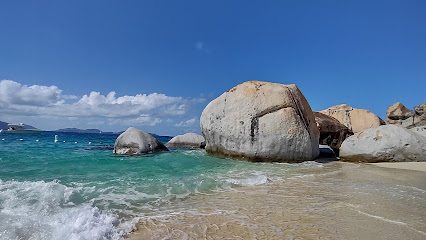
Nanny Cay Resort & Marina
Discover the serene beauty of Nanny Cay Resort & Marina, a perfect getaway in Tortola offering luxurious accommodations and thrilling water adventures.
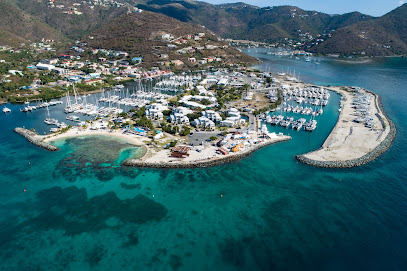
The Moorings: BVI (Tortola)
Set sail from Tortola with The Moorings and discover the beauty of the British Virgin Islands on a yacht charter vacation.
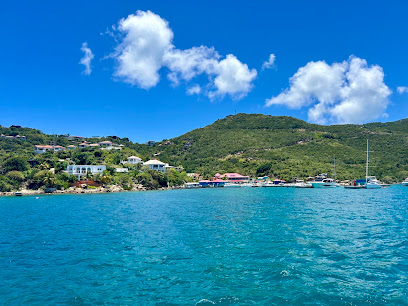
Smuggler's Cove
Experience the tranquil beauty of Smuggler's Cove, a hidden beach paradise in the British Virgin Islands, ideal for relaxation and marine exploration.
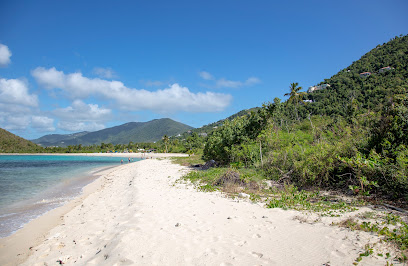
Soper's Hole Wharf & Marina
Experience the vibrant charm of Soper's Hole Wharf & Marina, where stunning views, delicious food, and unique shopping await in the British Virgin Islands.
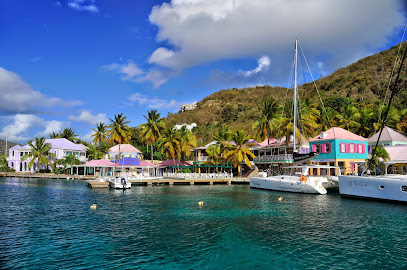
Wyndham Tortola BVI Lambert Beach Resort
Experience beachfront bliss at Wyndham Tortola BVI Lambert Beach Resort, offering relaxation, stunning views, and modern comfort on beautiful Lambert Beach.
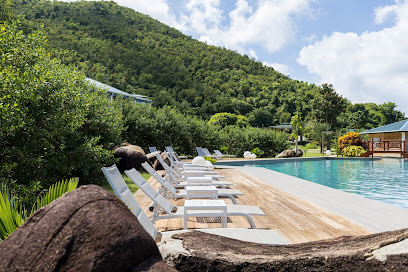
Cane Garden Bay
Discover the breathtaking beauty of Cane Garden Bay, a tropical gem in the British Virgin Islands known for its soft sands, lively bars, and stunning sunsets.
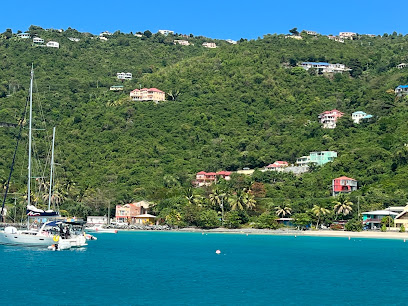
Quitos Gazebo & Luxury Inn
Experience the ultimate luxury and relaxation at Quitos Gazebo & Luxury Inn in stunning Cane Garden Bay, British Virgin Islands.
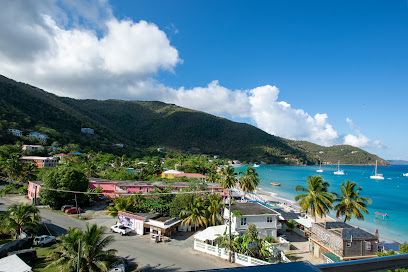
Bubbly Pool
Experience nature's jacuzzi at Bubbly Pool, a hidden gem on Jost Van Dyke offering a unique blend of relaxation and Caribbean thrill.
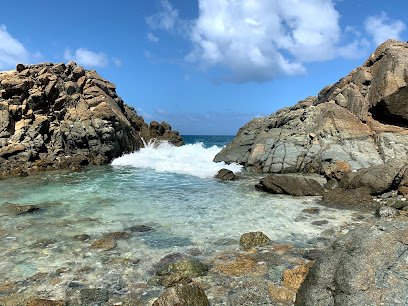
Treasure Point
Discover Treasure Point in the British Virgin Islands: a stunning snorkeling destination with vibrant marine life, tranquil beaches, and captivating natural beauty.
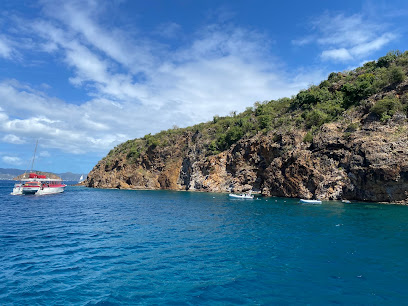
Setting Point
Discover Anegada's serene beauty from Setting Point: Pristine beaches, vibrant marine life, and a tranquil island escape await in the British Virgin Islands.
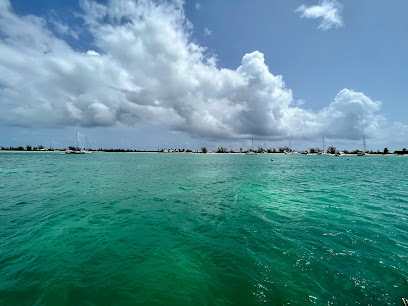
Cane Garden Bay Beach
Discover Cane Garden Bay: Tortola's idyllic beach with calm waters, vibrant culture, and stunning sunsets. A perfect Caribbean escape.
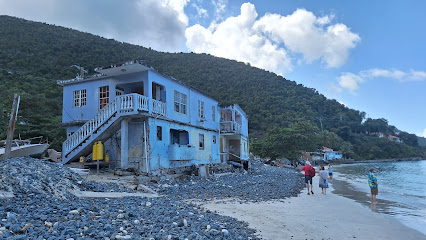
Pelican Peak Villa
Escape to Pelican Peak Villa in Tortola: Breathtaking views, luxurious amenities, and a tranquil Caribbean getaway await in Little Apple Bay.
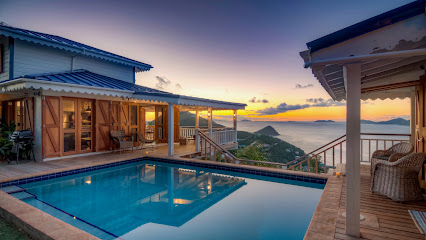
Brewers Bay
Experience the serene beauty of Brewers Bay in the British Virgin Islands, where pristine beaches and tranquil waters invite relaxation and adventure.
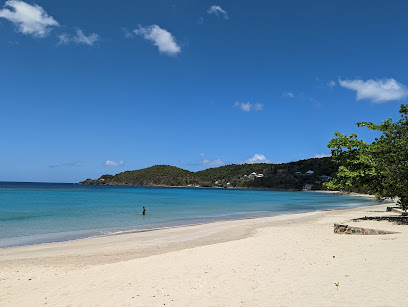
Josiah's Bay
Discover Josiah's Bay in Tortola: Surf, sun, history, and tranquility await on this picturesque Caribbean beach.
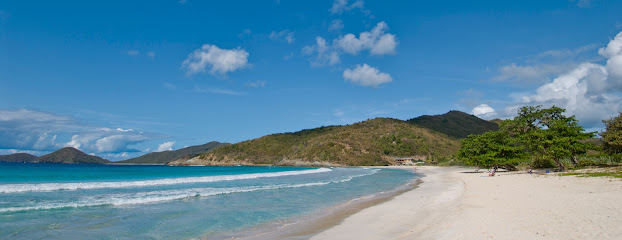
Unmissable attractions to see
Havensight Mall
Experience duty-free shopping, dining, and island vibes at Havensight Mall, St. Thomas' vibrant cruise port destination.
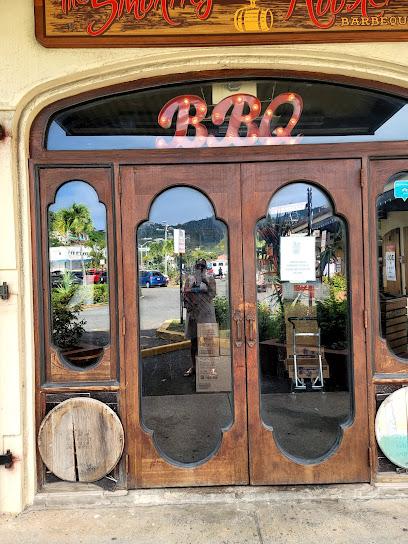
The Smoking Rooster
Island-style BBQ in St. Thomas, offering slow-smoked meats, unique rum cocktails, and a relaxed Caribbean vibe in the heart of Havensight Mall.

Tap and Still Havensight
Enjoy juicy burgers, crispy wings, and refreshing brews at this casual Havensight spot, perfect for a taste of island-style American comfort food.

Tortola Cruise Ship Pier
Your Caribbean adventure begins here! Discover the beauty and culture of Tortola and the British Virgin Islands from this vibrant cruise hub.
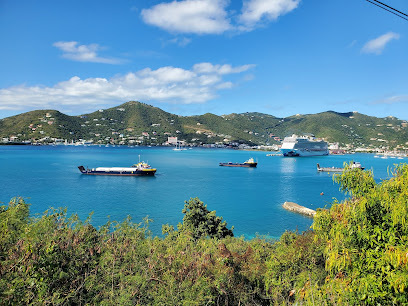
The Delly Deck
A St. Thomas dining institution since 1976, serving up a diverse menu of international and Caribbean flavors in a relaxed, friendly atmosphere.

Pie Whole Pizza
Experience authentic Italian pizza with a Caribbean twist at Pie Whole Pizza in Charlotte Amalie, St. Thomas. Fresh ingredients, brick oven flavor!
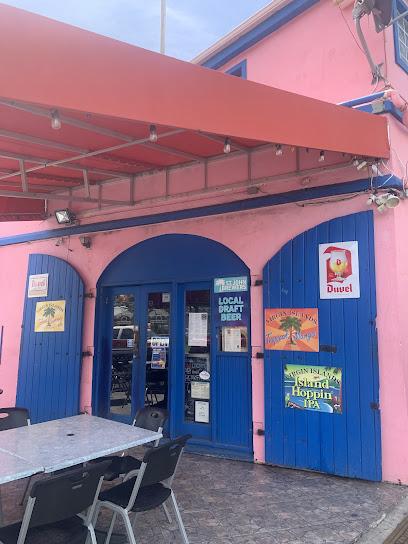
Pirates Treasure Museum
Discover authentic shipwreck treasures and pirate legends at St. Thomas's interactive Pirates Treasure Museum. A must-see for history buffs and families!
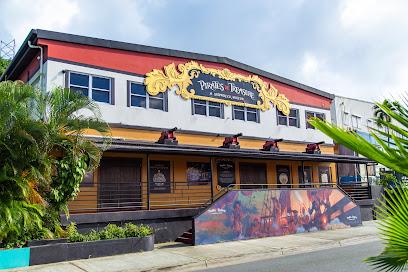
Cruise Ship Excursions
Your gateway to unforgettable St. Thomas adventures, offering a variety of excursions from a convenient location at Havensight Mall.

Lindbergh Bay Beach
A convenient and calming beach escape near the airport, Lindbergh Bay Beach offers soft sands, gentle waters, and a relaxing Caribbean vibe.
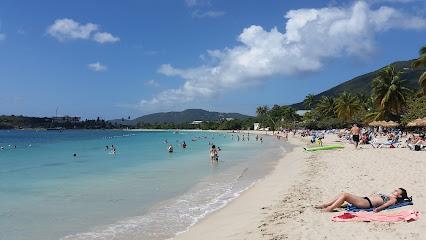
Hansen Bay Beach
Discover a secluded paradise on St. John's East End: Hansen Bay Beach, where tranquility meets Caribbean beauty. Perfect for swimming and snorkeling.
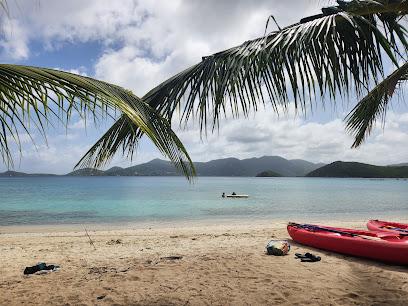
Agave - Havensight
Experience modern Mexican cuisine with innovative cocktails at Agave - Havensight, a vibrant dining destination in St. Thomas' bustling shopping hub.

Stormy Pirates Boat Charters
Explore St. Thomas's breathtaking waters with Stormy Pirates Boat Charters: Snorkeling, secluded beaches, and unforgettable Caribbean adventures await!
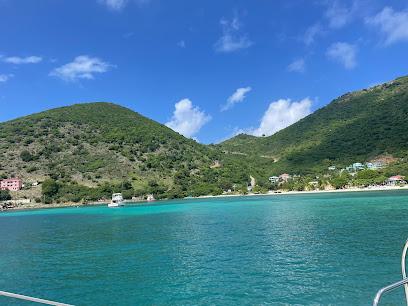
Bubbly Pool
Experience nature's jacuzzi at Bubbly Pool, a hidden gem on Jost Van Dyke offering a unique and exhilarating aquatic adventure.
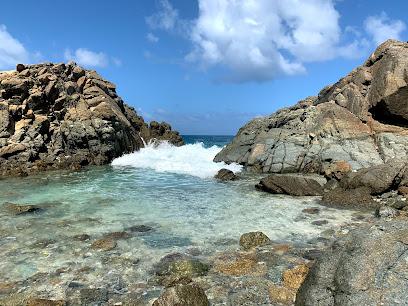
Setting Point
Discover Anegada's serene beauty at Setting Point: pristine beaches, vibrant marine life, and a tranquil escape in the British Virgin Islands.
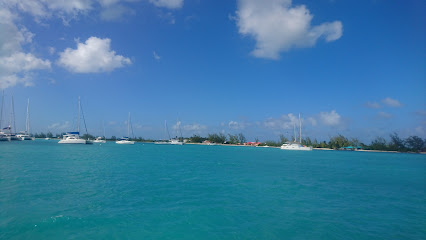
Trellis Bay
Experience the vibrant culture and laid-back atmosphere of Trellis Bay, a convenient and lively hub in the British Virgin Islands.
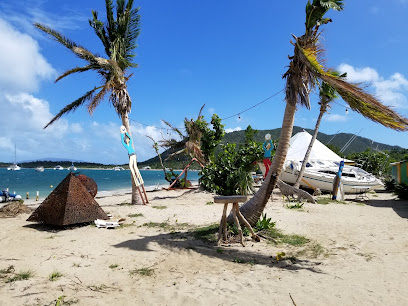
Essential places to dine
Nanny Cay Resort & Marina
Discover Nanny Cay Resort & Marina: Your ultimate tropical escape in Tortola's stunning Sea Cow Bay with luxurious amenities and thrilling adventures.
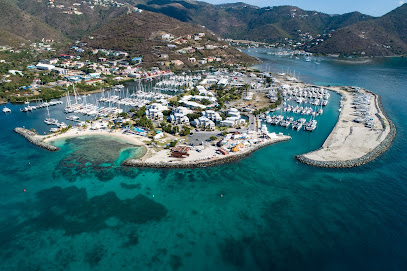
Pusser's
Experience authentic Caribbean cuisine at Pusser's in Road Town – where great food meets stunning waterfront views.
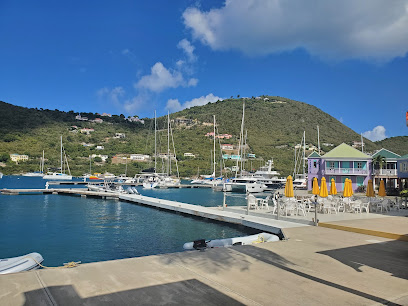
Maria's By The Sea Hotel & Restaurant
Experience unparalleled hospitality at Maria's By The Sea Hotel & Restaurant in Road Town, British Virgin Islands – where comfort meets Caribbean charm.

The Watering Hole
Experience delightful Caribbean cuisine at The Watering Hole in Tortola – where flavor meets friendly service in a cozy setting.
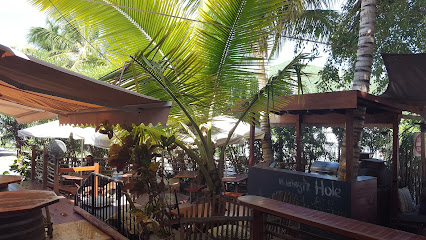
Peg Legs Restaurant
Discover tropical delights at Peg Legs Restaurant – where fresh seafood meets stunning Caribbean views in Nanny Cay.
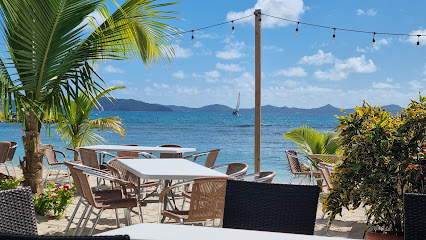
Capriccio di Mare
Experience exquisite Italian dining at Capriccio di Mare in Road Town, offering fresh flavors and stunning waterfront views in the British Virgin Islands.
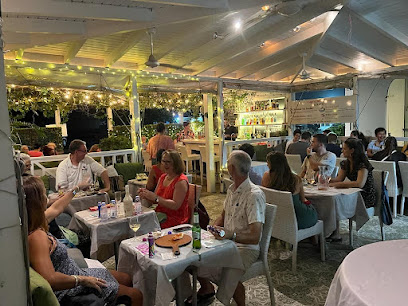
Myett's Restaurant & Hotel
Experience culinary excellence at Myett's Restaurant & Hotel in Cane Garden Bay - where delicious food meets breathtaking ocean views.
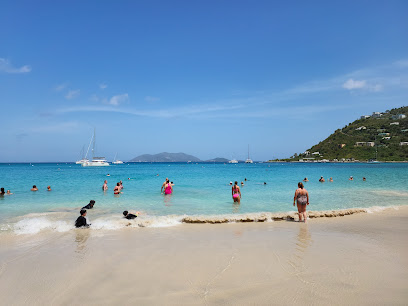
Captain Mulligans
Discover authentic Caribbean cuisine at Captain Mulligans in the beautiful British Virgin Islands - where great food meets stunning views.
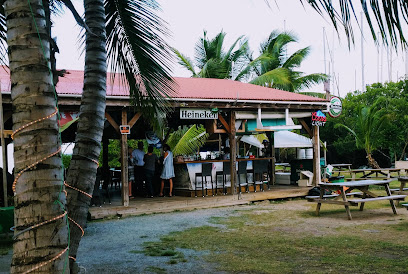
D'CoalPot BVI Restaurant Bar & Grill
Experience authentic Caribbean cuisine at D'CoalPot BVI Restaurant Bar & Grill amidst stunning views in the British Virgin Islands.
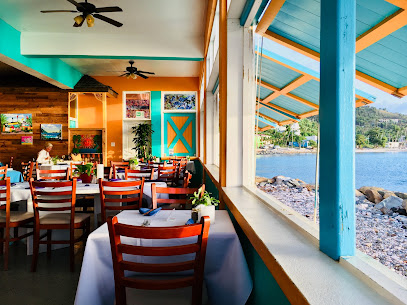
Omar's Fusion
Experience delightful Caribbean flavors at Omar's Fusion in Soper's Hole, Tortola - where local ingredients meet international cuisine.
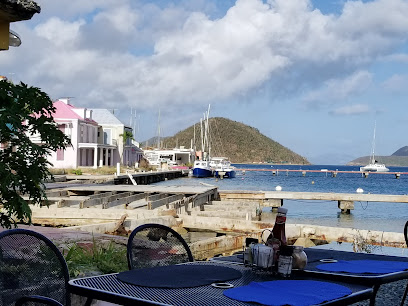
Bamboushay Restaurant & Lounge
Experience authentic Caribbean cuisine at Bamboushay Restaurant & Lounge in Road Town, British Virgin Islands – where every meal is a celebration.
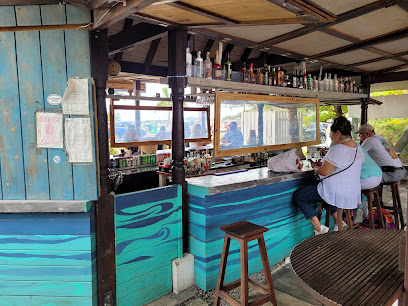
Red Rock
Experience the vibrant flavors of the British Virgin Islands at Red Rock Restaurant & Bar - where culinary delights meet breathtaking views.
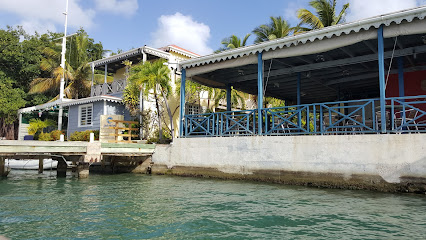
Naturally Tasty by RotiMan
Experience authentic Caribbean flavors at Naturally Tasty by RotiMan in Road Town - a culinary delight by the waterfront.
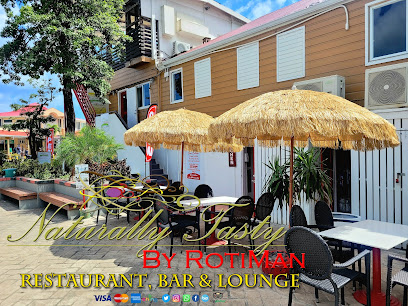
Nicoles Beach Bar
Discover Nicoles Beach Bar: A tropical haven in the British Virgin Islands offering delectable food, refreshing drinks, and breathtaking ocean views.
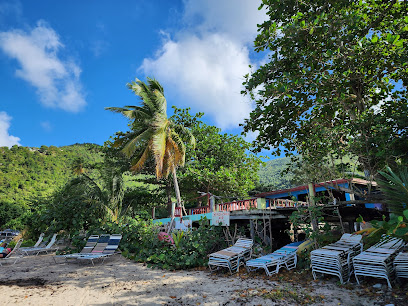
Patricias Beach Bar
Discover culinary delights at Patricias Beach Bar - a tropical grill haven in the heart of the British Virgin Islands.
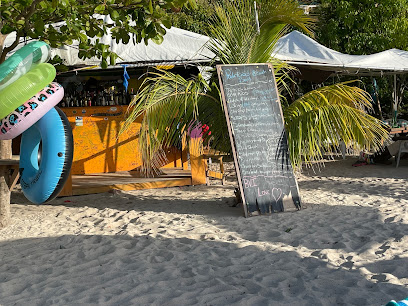
Markets, malls and hidden boutiques
Cyril B. Romney Tortola Pier Park
Experience the lush gardens and vibrant culture of Cyril B. Romney Tortola Pier Park in the heart of the British Virgin Islands, a perfect spot for relaxation and exploration.
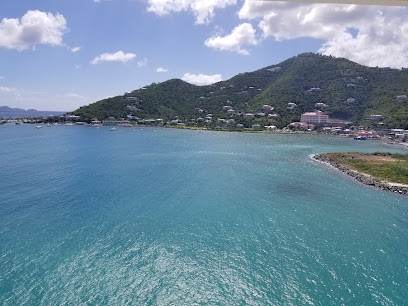
Smuggler's Cove
Experience the tranquil beauty of Smuggler's Cove, a hidden beach gem in the British Virgin Islands ideal for relaxation and adventure.
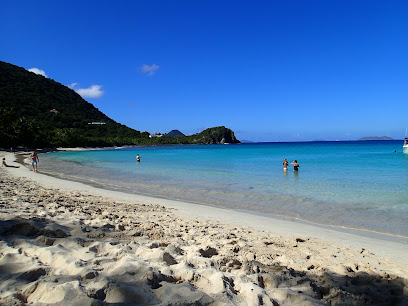
Soper's Hole Wharf & Marina
Experience the vibrant culture and breathtaking views at Soper's Hole Wharf & Marina, a premier shopping and dining destination in Tortola, British Virgin Islands.
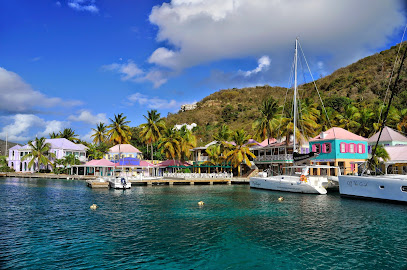
Trellis Bay Market Bar & Grill
Experience the flavors of the Caribbean at Trellis Bay Market Bar & Grill, where local ingredients meet stunning bay views for an unforgettable dining experience.
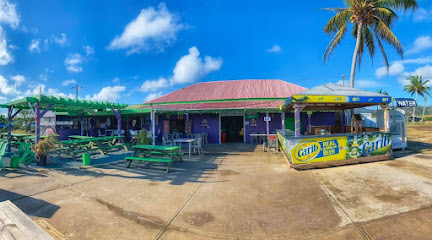
French Deli & Gourmet Shop
Experience a culinary journey at the French Deli & Gourmet Shop in Road Town, where gourmet food and local flavors perfectly blend.
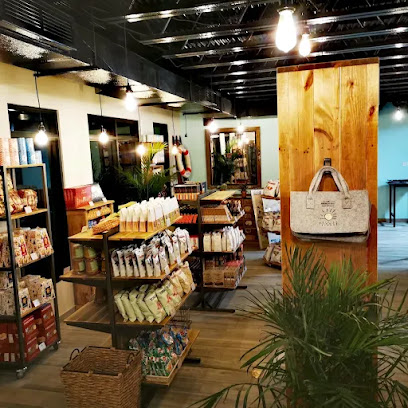
Blue Water Divers
Explore the stunning underwater world with Blue Water Divers in the British Virgin Islands, where adventure awaits beneath the waves.
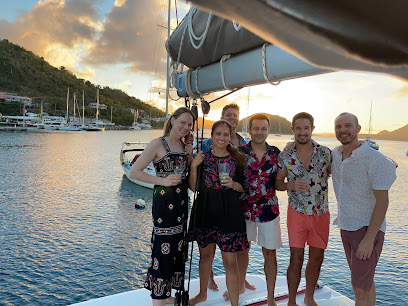
Island Department Store
Explore the Island Department Store, your ultimate shopping destination in the British Virgin Islands, featuring a diverse range of appliances and home furnishings.
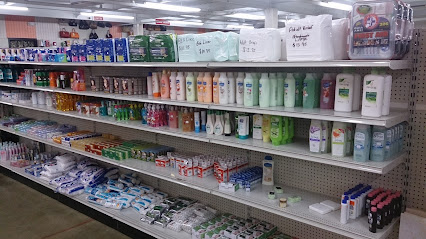
Tortola Pier Park
Explore Tortola Pier Park, the vibrant shopping center in the British Virgin Islands, offering local crafts, delicious cuisine, and breathtaking views.
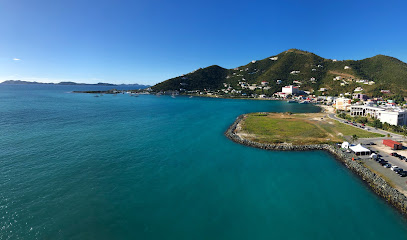
Omar's Coffee House
Experience the flavors of the British Virgin Islands at Omar's Coffee House, a charming spot for breakfast, brunch, and artisanal coffee.
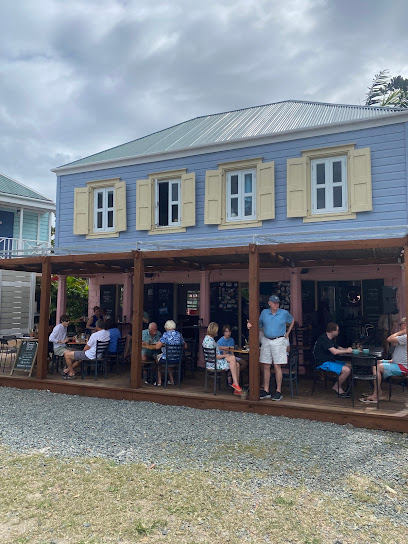
Crafts Alive Village
Discover authentic Caribbean souvenirs and local crafts at Crafts Alive Village in Road Town, British Virgin Islands, a must-visit for every tourist.
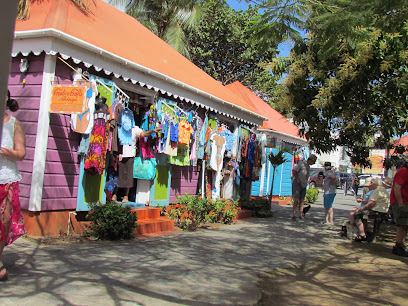
BVI Island Surf and Sail
Experience the thrill of water sports at BVI Island Surf and Sail in the breathtaking British Virgin Islands, where adventure meets paradise.
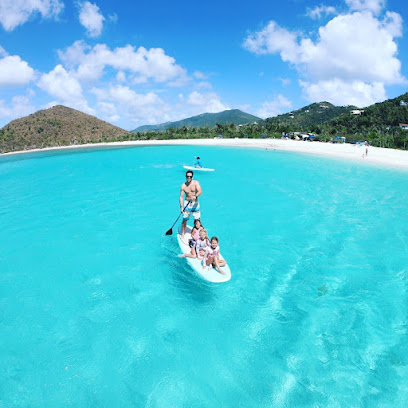
Steakation Butchers
Discover the best local and imported meats at Steakation Butchers, a top-rated butcher shop in Road Town, British Virgin Islands.
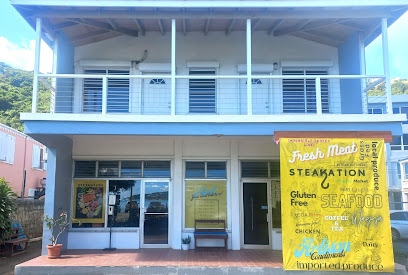
Varieties & Electronics
Discover the ideal shopping destination in Road Town for clothing and appliances at Varieties & Electronics in the British Virgin Islands.
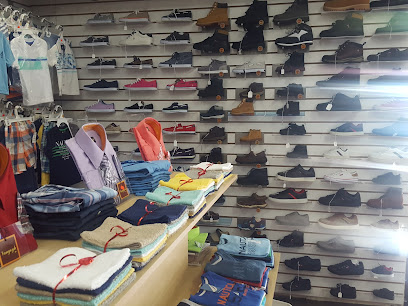
Tortola
Experience the breathtaking beauty and vibrant culture of Tortola, the largest island in the British Virgin Islands, perfect for relaxation and adventure.
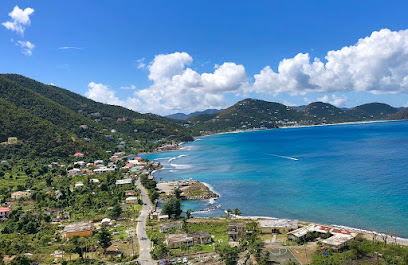
Little Switzerland
Explore Little Switzerland: A premier destination for exquisite jewelry and luxury watches in the breathtaking British Virgin Islands.
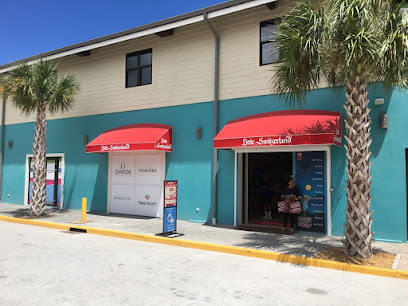
Essential bars & hidden hideouts
Pusser's
Discover the essence of Caribbean dining at Pusser's in the British Virgin Islands, where vibrant flavors meet stunning waterfront views.
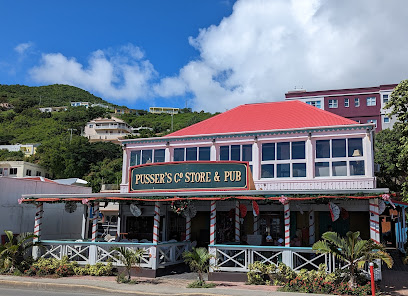
Stoutt's Lookout Bar
Experience the best of Tortola at Stoutt's Lookout Bar, where stunning views meet delicious local flavors in a laid-back atmosphere.
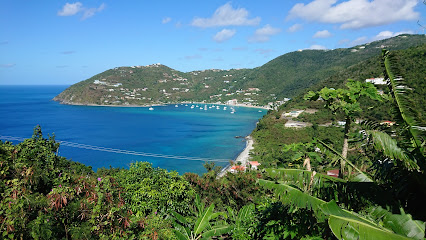
The Watering Hole
Discover the vibrant flavors of The Watering Hole, a premier bar and grill in Road Town, offering delicious meals and a lively atmosphere in the British Virgin Islands.
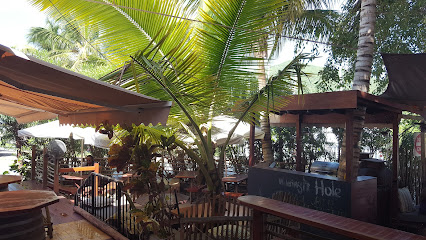
Paradise Club Lounge, Bar, & Restaurant
Discover the vibrant Paradise Club Lounge, Bar, & Restaurant in Cane Garden Bay, offering delightful drinks, stunning views, and a lively atmosphere in the British Virgin Islands.
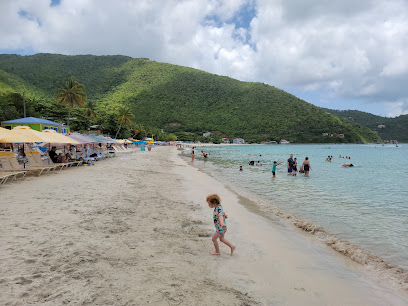
Nicoles Beach Bar
Discover the perfect blend of relaxation and culinary delight at Nicoles Beach Bar in the stunning British Virgin Islands.
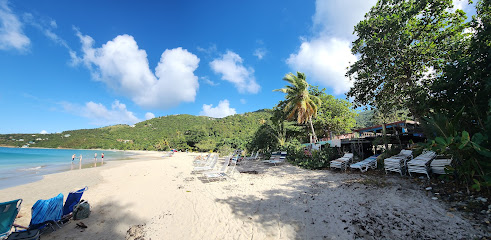
Gene's Bar & Grill
Discover the vibrant flavors of the British Virgin Islands at Gene's Bar & Grill, where every bite is a celebration of Caribbean cuisine.
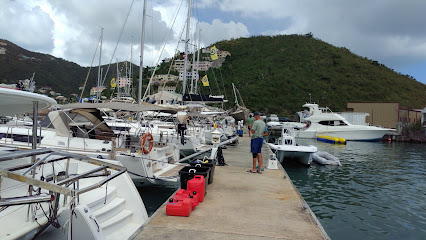
Patricias Beach Bar
Experience the vibrant flavors and stunning views at Patricia's Beach Bar in the heart of Smugglers Cove, British Virgin Islands.
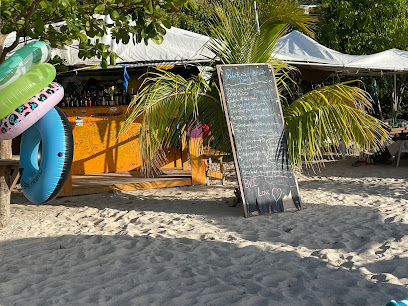
Nigel’s Boom Boom Beach Bar & Grill
Experience the vibrant atmosphere and delicious Caribbean cuisine at Nigel’s Boom Boom Beach Bar & Grill in the stunning British Virgin Islands.
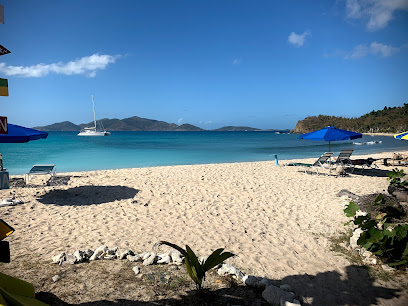
Indigo Beach House
Experience the vibrant culture and breathtaking views at Indigo Beach House in Cane Garden Bay, British Virgin Islands, where every sip is a taste of paradise.
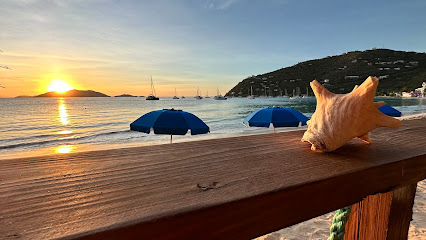
Nardie's Beach Bar
Experience the vibrant atmosphere and stunning beach views at Nardie's Beach Bar in Tortola, your ideal Caribbean getaway for food and fun.
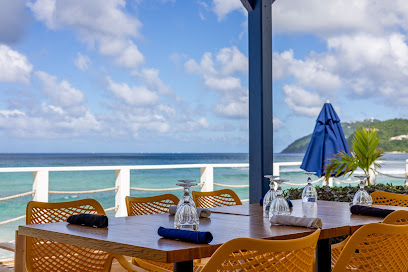
Glen Seaside Bar and Restaurant
Experience the flavors of the British Virgin Islands at Glen Seaside Bar and Restaurant, where breathtaking ocean views meet delightful Caribbean cuisine.
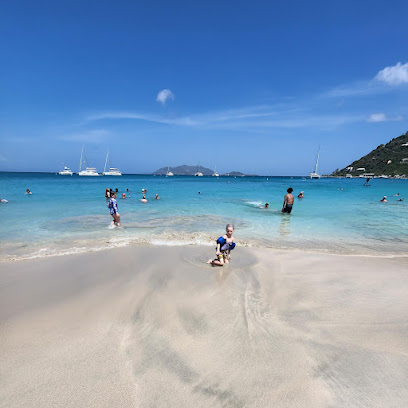
Tropix Cocktail Bar
Experience the essence of the Caribbean at Tropix Cocktail Bar, where vibrant cocktails and stunning views await in Road Town.
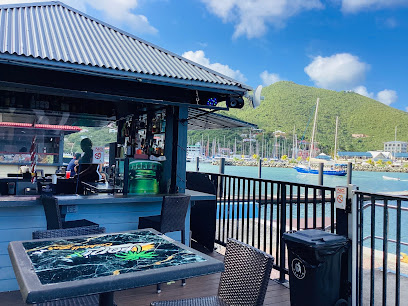
Admiral's Bar
Discover the charm of Admiral's Bar in Freshwater Pond, where relaxation meets vibrant island culture in the beautiful British Virgin Islands.
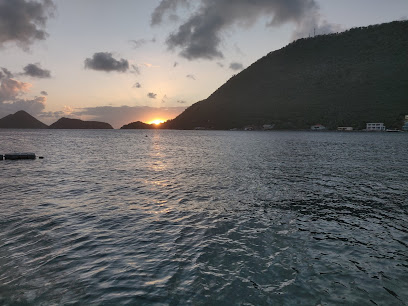
Rudy's Bar
Experience the vibrant atmosphere and tropical delights at Rudy's Bar in the heart of the British Virgin Islands.
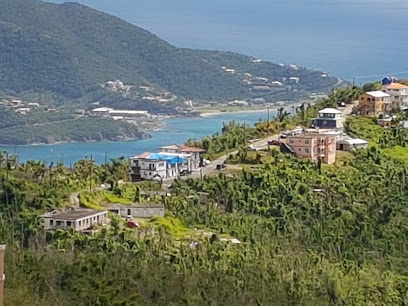
De Wedding
Experience the best of British Virgin Islands cuisine at De Wedding, a premier grill and bar in scenic Cane Garden Bay, offering stunning views and fresh flavors.
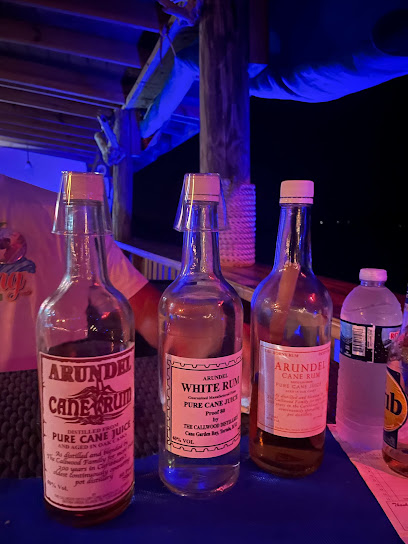
Local Phrases about Tortola Beaches
-
- HelloGood Morning
[Gud Mawnin] - GoodbyeGoodbye
[Gudbai] - YesYes
[Yes] - NoNo
[No] - Please/You're welcomePlease
[Pliz] - Thank youThank you
[Tengkyu] - Excuse me/SorryExcuse me
[Exkyuz mi] - How are you?How are you?
[Haw aa yu] - Fine. And you?I dey alright. And you?
[I dey alright. And yu?] - Do you speak English?You speak English?
[Yu spiik Inglish?] - I don't understandI no sabi
[I no sabi]
- HelloGood Morning
-
- I'd like to see the menu, pleaseI wan see menu, abeg
[I wan see menu, abeg] - I don't eat meatI no chop meat
[I no chop meat] - Cheers!Cheers!
[Cheers!] - I would like to pay, pleaseI go pay, abeg
[I go pay, abeg]
- I'd like to see the menu, pleaseI wan see menu, abeg
-
- Help!Help!
[Help!] - Go away!Comot!
[Comot!] - Call the Police!Call Police!
[Call Police!] - Call a doctor!Call doctor!
[Call doctor!] - I'm lostI lost
[I lost] - I'm illI dey sick
[I dey sick]
- Help!Help!
-
- I'd like to buy...I wan buy...
[I wan buy...] - I'm just lookingI just dey look
[I just dey look] - How much is it?How much e be?
[How much e be?] - That's too expensiveE too cost
[E too cost] - Can you lower the price?You fit reduce the price?
[You fit reduce the price?]
- I'd like to buy...I wan buy...
-
- What time is it?Wetin be di time?
[Wetin be di time?] - It's one o'clockNa one o'clock
[Na one o'clock] - Half past (10)Na half past ten
[Na half past ten] - MorningMorning
[Morning] - AfternoonAfternoon
[Afternoon] - EveningEvening
[Evening] - YesterdayYesterday
[Yesterday] - TodayToday
[Today] - TomorrowTomorrow
[Tomorrow] - 11
[1] - 22
[2] - 33
[3] - 44
[4] - 55
[5] - 66
[6] - 77
[7] - 88
[8] - 99
[9] - 1010
[10]
- What time is it?Wetin be di time?
-
- Where's a/the...?Waya dey...?
[Waya dey...?] - What's the address?Wetin be di address?
[Wetin be di address?] - Can you show me (on the map)?You fit show me for map?
[You fit show me for map?] - When's the next (bus)?When next bus go come?
[When next bus go come?] - A ticket (to ....)Ticket (go ...)
[Ticket (go ...)]
- Where's a/the...?Waya dey...?
History of Tortola Beaches
-
Long before the European explorers arrived, the Arawak and later the Carib peoples inhabited the islands of Tortola. These indigenous groups thrived on the island's rich resources, fishing in its clear waters and cultivating the fertile land. Archaeological evidence of their presence can still be found along the beaches, with ancient petroglyphs and artifacts offering a glimpse into their way of life.
-
In 1493, Christopher Columbus sailed through the Virgin Islands during his second voyage to the New World. Although he did not land on Tortola, his expedition marked the beginning of European interest in the region. Columbus named the islands 'Las Once Mil Vírgenes' in honor of the legendary St. Ursula and her 11,000 virgins.
-
During the 17th century, the sheltered bays and coves of Tortola's beaches became a haven for pirates and privateers. Notorious figures such as Blackbeard and Captain Kidd were said to have used the island's hidden inlets to stash their plunder and repair their ships. The pirate legacy is still a captivating aspect of Tortola's history, with stories and legends passed down through generations.
-
In the mid-17th century, the Dutch established the first European settlement on Tortola. However, the island soon became a British colony after the English captured it in 1672. Under British rule, Tortola developed into an important sugar cane plantation economy, with enslaved Africans brought to the island to work on the plantations. The influence of this period is still evident in the island's architecture and cultural practices.
-
The abolition of slavery in the British Empire in 1834 had profound effects on Tortola's society and economy. Freed slaves established their own communities and contributed significantly to the island's cultural and social landscape. The beaches of Tortola became places of celebration and community gatherings, reflecting the newfound freedom and resilience of its people.
-
In the mid-20th century, Tortola began to emerge as a premier tourist destination. The pristine beaches, crystal-clear waters, and vibrant coral reefs attracted visitors from around the world. With the establishment of resorts, marinas, and other tourist infrastructure, Tortola's beaches have become synonymous with relaxation and natural beauty, while still preserving their rich historical and cultural heritage.
-
Tortola has faced numerous hurricanes throughout its history, with significant storms such as Hurricane Irma in 2017 causing widespread damage. Despite these challenges, the resilience of the local communities and their deep connection to the land and sea have enabled them to rebuild and preserve the island's unique charm and character.
Tortola Beaches Essentials
-
Tortola is accessible primarily by air and sea. The nearest major airport is Terrance B. Lettsome International Airport (EIS) on Beef Island, connected to Tortola by the Queen Elizabeth II Bridge. Direct flights are limited, so most travelers connect via San Juan, Puerto Rico, or other Caribbean hubs. Additionally, Tortola can be reached by ferry from nearby islands such as St. Thomas in the U.S. Virgin Islands.
-
Once on Tortola, transportation options include taxis, rental cars, and public minibuses. Taxis are readily available but can be expensive. Renting a car is a popular option for exploring the island at your own pace, but be mindful that driving is on the left side of the road. Public minibuses, known locally as 'safaris,' offer a more economical way to travel but have fixed routes and schedules.
-
The official currency is the US Dollar (USD). Credit cards are widely accepted in hotels, restaurants, and larger shops, but it's advisable to carry some cash for smaller establishments and local markets. ATMs are available in Road Town and other major areas, but fees may apply for international cards.
-
Tortola is generally a safe destination, but it's important to exercise usual precautions. Avoid isolated areas, especially after dark, and safeguard your valuables. Areas like Road Town are typically safe, but be cautious in less populated regions. Petty theft can occur, so always keep an eye on your belongings.
-
In case of emergency, dial 911 for immediate assistance. The main hospital on Tortola is the Peebles Hospital located in Road Town, providing medical services. Pharmacies are also available for minor health issues. It is recommended to have travel insurance that covers medical emergencies and evacuation if necessary.
-
Fashion: Do wear lightweight, breathable clothing, but avoid overly revealing outfits, especially in more traditional areas. Religion: Do respect local customs and traditions, including modest dress when visiting churches. Public Transport: Do greet the driver and fellow passengers when boarding a minibus. Don't eat or drink on public transport. Greetings: Do greet with a friendly 'Good morning' or 'Good afternoon.' Handshakes are also common. Eating & Drinking: Do try local dishes and seafood. Don't refuse hospitality, as it is considered impolite.
-
To experience Tortola like a local, visit the local markets in Road Town where you can buy fresh produce and handmade crafts. Try the local cuisine, including dishes like fish and fungi or roti. Engage with locals who are typically friendly and happy to share stories about the island. Don't miss out on less crowded beaches like Smuggler's Cove for a more secluded experience.
Trending Landmarks in Tortola Beaches
Nearby Cities to Tortola Beaches
-
Things To Do in Tortola
-
Things To Do in Jost Van Dyke
-
Things To Do in Road Town
-
Things To Do in The Valley
-
Things To Do in Spanish Town
-
Things To Do in Virgin Gorda
-
Things To Do in Anegada
-
Things To Do in Culebra
-
Things To Do in Vieques
-
Things To Do in Fajardo
-
Things To Do in Luquillo
-
Things To Do in Carolina
-
Things To Do in Caguas
-
Things To Do in Bayamón
-
Things To Do in Guayama










